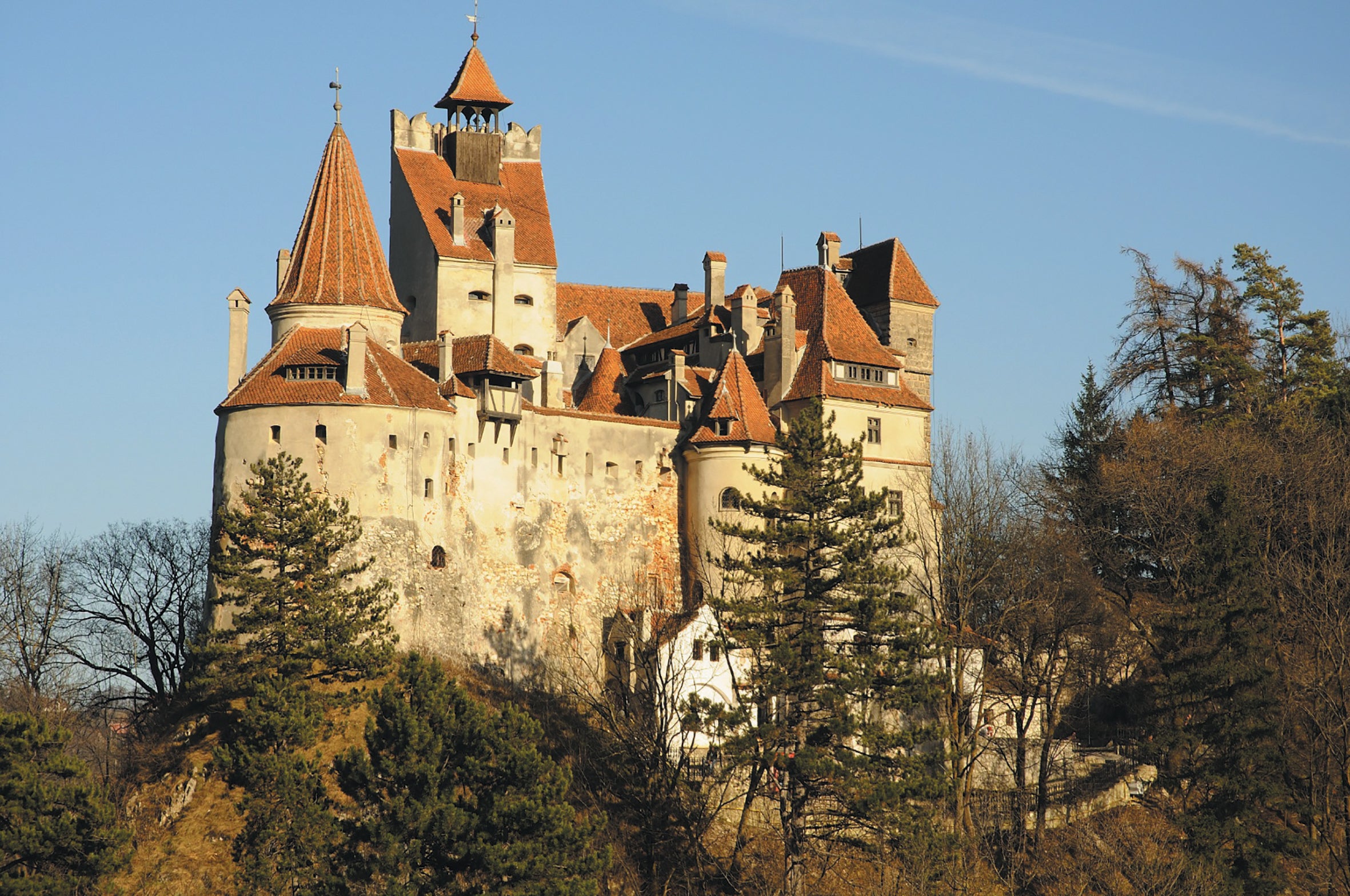I’m gazing at the blank horizon ahead of me, blurred by a haze of stifling 38C heat rising from flat farmland, when everything suddenly goes dark.
Adjusting my eyesight, I can just about make out rows of tall, slender pine trees rising from the deep, murky forest. It’s not hard to see why the Southern Carpathian mountains are the backdrop for so many eerie tales.
We’re driving through the Bucegi mountain range in Transylvania, an area in central Romania that’s home to medieval castles, astounding scenery and mystical folklore.
The largest of the Balkan countries, this southeast European country is a natural wonder of dramatic mountain scenery and a coastline lapped by the Black Sea. A troubled past and lack of infrastructure is likely responsible for the slow growth in tourism, but numbers of visitors are steadily rising; around 13.6 million visited in 2023 (although that’s still a fraction of Croatia’s 20.6 million for the same period in a country a quarter of the size).
Recognising the destination’s great value offerings (a pint of beer is around £2), package holiday giant Tui is promoting it as the place to visit this summer.
To date, Romania’s greatest tourism attraction is the myth of Dracula – which is why I’ve ended up in the Carpathian Mountains, a two-and-a-half-hour drive from the capital.
The region of Transylvania was the setting for Bram Stoker’s famed novel, Dracula. The titular character is often confused with Romanian prince, Vlad Tepes – commonly known as Vlad the Impaler, due to his bloodthirsty nature.

Read more on Europe travel:
The connection stems from his father Vlad II’s association with the Crusader Order of the Dragon, or ‘Dracul’ – which also translates to ‘the devil’. Vlad II claimed the moniker as his own, and became known as Vlad Dracul, and therefore ‘Dracula’ translates to ‘son of the devil’, a fitting tribute for the violent Vlad Tepes.
Stoker learned Vlad Tepes lived in a castle in the Transylvania region. Despite never visiting the area himself, his depiction of the castle in Dracula most closely resembles Bran Castle.
After surfacing from dark woodlands, we arrive at Bran, and I catch my first glimpse of the castle, perched atop a craggy rock face, its terracotta turrets glowing in the…
Click Here to Read the Full Original Article at The Independent Travel…
